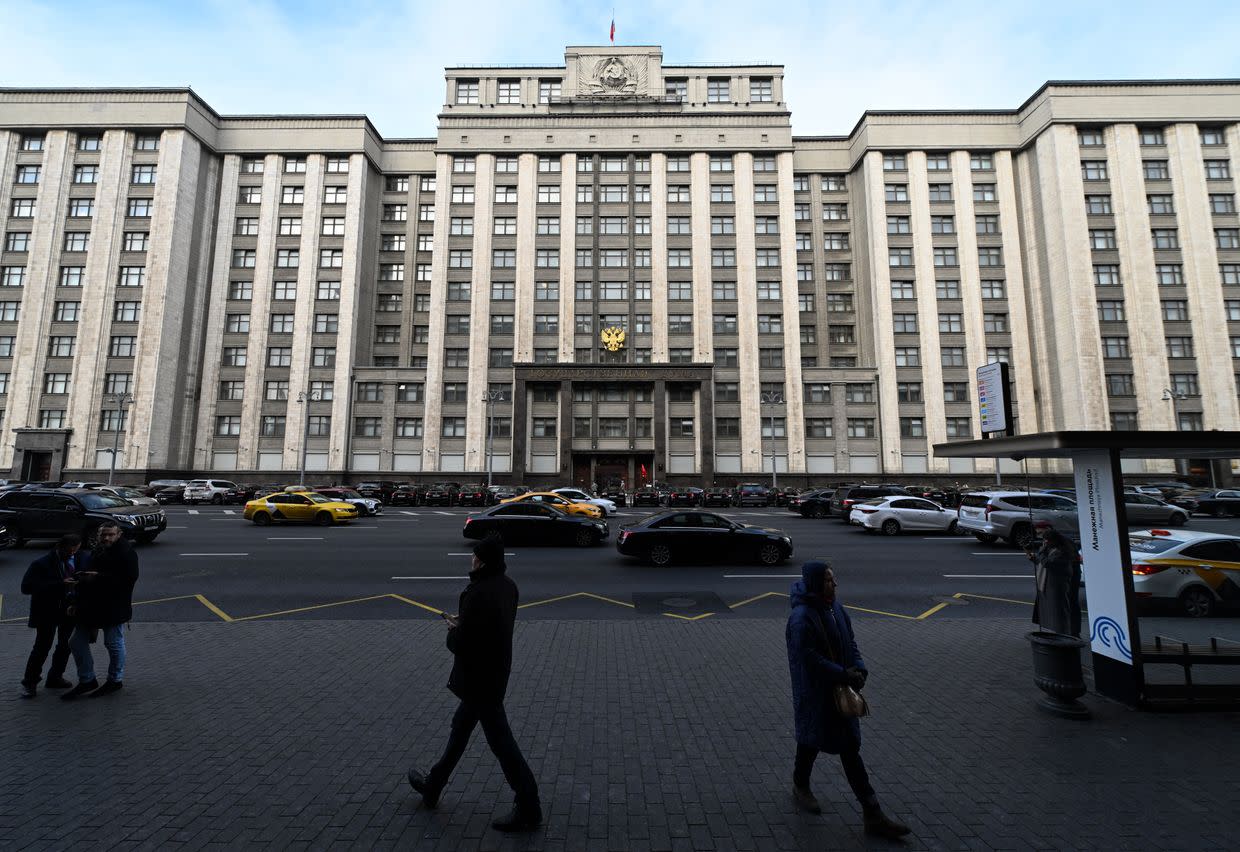Russia approves bill to ban 'undesirable' foreign state-funded organizations

The Russian government passed a law on May 13 that would expand the list of "undesirable" organizations to include those funded by foreign states, which then could be subject to bans.
The law on "undesirable" organizations has existed since 2015 and has been used to target perceived opponents of Russian President Vladimir Putin's regime, including NGOs, independent media outlets, human rights groups, and others.
There are currently 160 such organizations listed as being "undesirable."
Organizations belonging to the list are banned from operating in Russia, and it is illegal for individuals or other media outlets to share their content.
The new legislation would expand the list to include foreign state-funded organizations, such as media outlets like the BBC or Radio Free Europe/Radio Liberty (RFE/RL).
The bill is designed to combat "sanctions, blocked investment projects, training agents of influence, interference in Russian elections, incitement of ethnic hatred, and much more," said lawmaker Vasily Piskarev when the legislation was first introduced in February.
Piskarev added that agencies of foreign states and organizations that Russia is a member of will not be labeled "undesirable."
The Institute for the Study of War (ISW) wrote in February that the bill would make it more difficult for journalists from Russian opposition media outlets based outside the country and foreign outlets with Russian-language services to report on domestic Russian politics, as they would be banned from entering the country.
Read also: Russia’s new Kharkiv offensive pushes Vovchansk to the brink of annihilation
We’ve been working hard to bring you independent, locally-sourced news from Ukraine. Consider supporting the Kyiv Independent.

